In one of the highest-profile interviews to date, Peter Freeman, chairman of Homes England joins Montfort’s Andrew Teacher on PropCast to talk building more social housing, his ambition to supercharge Cambridge into the UK’s Silicon Valley, and why property development is a little bit like filmmaking.
LISTEN to this podcast via Apple, Amazon, Spotify or SoundCloud (and many other platforms) or just use the player below:
Long before Peter Freeman was appointed chair of Homes England in 2020, he was making waves in the property industry and changing the very face of the UK’s built environment.
In 1981, Freeman founded Argent Group – an investor and developer now best known for its King’s Cross and Brent Cross Town regeneration schemes in London. He was shortlisted for the prestigious Wolfson Economic Prize in 2014 for his work on delivering garden cities. And now, as the head of the government’s housing and regeneration agency, he is putting his mind to solving one of the UK’s most pressing issues: the supply of affordable homes.
As part of this task, Freeman has most recently been appointed as chair of the Cambridge Delivery Group, a body the government has tasked with delivering its ambitious vision to create the “Silicon Valley of Europe” – including building up to 250,000 new homes.
“We will advise the government on the opportunities to help drive the growth of Cambridge in the best way possible to capture for Britain the growth in life sciences, robotics, and artificial intelligence,” he explains.
Part of this challenge means delivering growth alongside an expansion of the town’s capacity for water, energy, and traffic. But Freeman’s ambition goes far beyond the borders of the city. He sees the possibility for Cambridge to act as a “hub” with agglomeration benefits for the region, and indeed the country.
Freeman continues: “What we do in Cambridge can be an exemplar for what needs to be done around the country because too often, property is siloed – it’s either housing or offices.”
And in doing so, the Homes England boss is drawing from his experience at redevelopment specialists Argent.
“The first thing we built at King’s Cross were the fountains in the main square,” he recalls. “They drive that sense of King’s Cross being an open place that people can enjoy coming to: they don’t have to pay, they don’t have to have a reason to come to visit a building – they can just enjoy the fountains.”
“If Cambridge is to grow,” he continues, “it deserves more schools and doctors’ surgeries. But the green spaces, the open public spaces, and the ways people congregate is absolutely critical.”
Perhaps more than anyone, Freeman understands the accompanying need for housing in order to sustain growth.
“Although housing is not quite the national health and the education system, where 85 percent of funding comes from the state, ultimately it is so critically important to have good homes and enough homes, that the state has to take responsibility for it,” he says, explaining the core reasoning behind Homes England.
“Churchill described housing as the first of the social services,” he adds.
While previously, the body was laser-focused on its goal of delivering 300,000 homes a year, Freeman welcomes a new wider remit concerning issues like regeneration and levelling up.
By way of an explanation, he cites Homes England chief executive Peter Denton’s favourite expression: “He says one and one makes three.”
Freeman continues: “If we can bring a housing association with funding together with something from the infrastructure fund, and we can add capacity and capability to the local authority and bring them all together – that’s the one plus one equals three.”
And while certain parts of the political spectrum may see private capital and housing associations working collaboratively as a contradiction in terms, Freeman is more clear-eyed.
“There are perfectly respectable blue-chip people who are managing pension fund money for whom this is a good matched liability, because there’s going be people paying rent in affordable homes forever,” he observes.
“And we don’t see any problem in supplementing housing associations or local authority housing with additional money if it comes from somebody who’s a truly responsible landlord.”
Freeman, no doubt drawing on his experience at Argent, remains optimistic about the ability of both the government and private sector to bring communities on board. “If we can build better things, bring more amenities with them, and take the community with us, it will be easier to get planning,” he notes. “There will be more housing and there will be less of an affordability crisis.”
And despite the current economic downturn, Freeman’s positivity remains steadfast: “My optimism comes from the fact I really believe in Britain – whether it’s that we’re good at inventing things, or we’re good at the sport, or we’re good at making James Bond films, or famous musicians – it is a good and safe place to be.”
LISTEN to this podcast via Apple, Amazon, Spotify or SoundCloud (and many other platforms) or just use the player above.






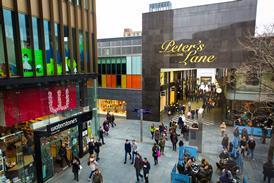
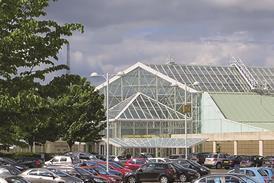
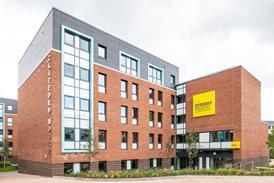



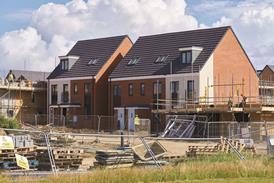

















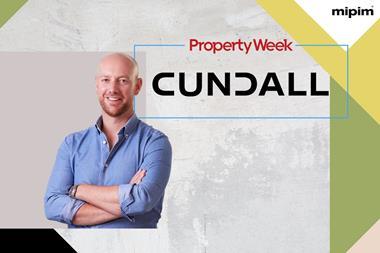
No comments yet